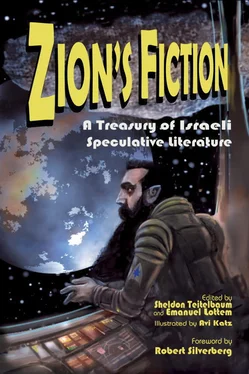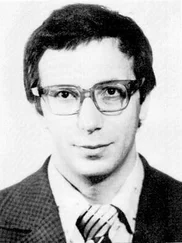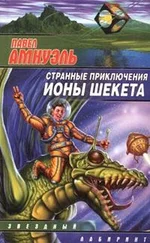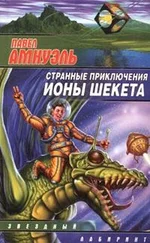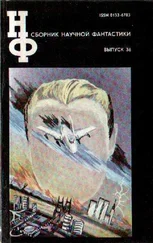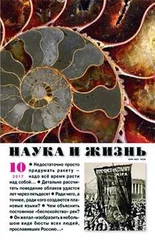Meanwhile, light entertainment and easy diversions were left largely to the aforementioned shundt , to the cinema, to the communal campfire, to sing-alongs, and, much later, to television. Indeed, TV serves as perhaps the best example of Israeli cultural gatekeepers in rearguard action. Until as late as 1966, it was simply banned in Israel, because Prime Minister David Ben-Gurion feared that it would “distract children’s minds, so that instead of studying and expanding their knowledge, they would be captivated by vulgar entertainment.” [12] Quoted in Oren Tokatly, Mediniyut Tikshoret beIsrael [Communications policy in Israel] (Tel Aviv: Open University Publishing House, 2000), 85.
And even after TV had been introduced (well after the Old Man had left office), for twenty more years the country had just two channels, both under government control. The transition to the current situation, with numerous public as well as commercial channels, cable, satellite, and, ultimately, streaming venues, was motivated by the same forces—to be discussed below—that have made Israeli literature much more variegated.
Once the State of Israel came into being in 1948, writers of the younger generation—the so-called Dor haMedina, or Statehood Generation—should have been able, one might have thought, to reverse the trend. After all, the Zionist dream was fulfilled: there was a Jewish state in place, so perhaps the time had come for its intellectuals, specifically writers and poets, to let loose their imaginations. The ground was ready, one might have concluded, for a poststate literary scene more enamored of fancy. Alas, the kind of fabulation these men and women engaged in proved quite unlike any genre of speculative literature the world has ever seen.
For with each passing year, the normalcy Israel so desperately yearned for proved ever beyond its grasp. The country emerged from its formative War of Independence without recognized borders. Palestinian and other Arab opponents vowed to rectify what they termed the Nakba, or catastrophic defeat, with future rounds of warfare—as many as it would take to rid the region of its nonnative Jews. Similarly, the Israelis awaited Round Two (and then Round Three, and Four, and…), which they hoped would end with more tenable borders replacing the unsustainable cease-fire lines of 1949.
The more uncertain the country’s prospects, the more its storytellers strove to enshrine the boring, mundane, quotidian realities that eluded them—thus the wholesale appropriation of a peculiar literary genre governed by Eastern European conventions of social, political, and psychological realism. The fact that in Israel such conditions could rarely be found outside of isolated pockets dissuaded few.
Early Israeli literature therefore, author and scholar Elana Gomel and others have observed, restricted itself to desultory ruminations over the narrower aspects of kibbutz life; to bourgeois melodramas set in Tel Aviv; to depictions of the dire predicaments of nearly destitute Sephardic and Mizrahi immigrants dispatched to peripheral regions; to often self-serving reminiscences of the prestate underground; to the then still shame-inducing Holocaust, encapsulated by the biblical expression “as lambs to the slaughter” (this attitude would change, drastically, only during the Eichmann trial in 1961); to the exigencies of army life; and, infrequently, to various romanticized aspects of daily life. [13] Elana Gomel, “What Is Reality?” in With Both Feet on the Clouds , 33. The term Mizrahi applies to Jews from Middle Eastern countries, many of whom are able to trace their lineage to the Babylonian dispersion, not to be confused or conflated with Sephardic Jews, whose forefathers had lived in Spain and Portugal for centuries prior to their expulsion in 1492 and 1496, respectively, and who generally dispersed southward and eastward. In fact, these are two distinct subcultures.
“Our generation’s Israeli literature,” argued author and critic Ioram Melcer, “adheres to the framework of Israeli reality, and barely exceeds it. Israeli time, Israeli man, Israeli sociology, Israeli problematics, the ideological partition in Israel—or in other words, the Israeli existence and essence—are the main referential framework of the greater part of Hebrew Literature written in Israel.” The template set, realism itself, as Gomel comments, was slated to become a particularly Israeli form of fantasy, one that would become more inventively inward-looking and self-reflective (often to the point of ignominious narcissism) with each passing decade. [14] Ioram Melcer, “Why Doesn’t It Rain Fish Here?” in With Both Feet on the Clouds , 194; Gomel, “What is Reality?” 32.
All this should not be misconstrued, we must stress, as a reflection on the quality of the literary output achieved by these writers, poets, and playwrights or their predecessors. Authors such as Moshe Shamir, Yizhar Smilansky, Hanoch Bartov, Nathan Shaham, and Aharon Meged, and poets such as Avraham Shlonsky and Nathan Alterman, alongside others, many others, have produced literary masterpieces while working within the constraints mentioned above. Still, there is no denying they were constrained in ways their successors are not.
In Structural Fabulation , scholar Robert Scholes defined his subject matter as the “fictional exploration of human situations made perceptible by the implications of recent science.” [15] Robert Scholes, Structural Fabulation: An Essay on the Fiction of the Future (Notre Dame and London: University of Notre Dame Press, 1975).
Israeli fiction, by contrast, imagined a Jewish commonwealth made perceptible by degrees of normalcy that cannot properly exist or endure under the conditions extant in the Middle East. Israeli literature celebrated the banal, often ignoring or downplaying those local and regional circumstances that threatened most strivings toward routine, everyday existence with implosion or worse. With apologies to Scholes, we might call this perhaps unique subgenre “Fabulistic Realism.”
The story so far can be recast in terms of a particular and problematic concept central to speculative fiction since its very inception: Utopia. “Israel,” argued sociologist Baruch Kimmerling, “was [however briefly—Eds.] considered the only successful materialization of utopia in the world.” As such, notes Gomel, Israel “represents a horizon of expectations, a vision of perfection against which the muddle of actual history inevitably appears as a mere transitional and fleeting stage…. Israel exists in the same generic continuum of other post-apocalyptic and post-utopian texts.” Denizens of the Jewish homeland have been seeking physical, psychic, or digital respite from the unrelenting hostility endured over the course of the last one hundred years (the catchphrase often used by Israelis in this context is “a villa in the jungle”). Israelis, writes cultural observer Diana Pinto, now think of themselves as “living in [their] own cyberspace at the very heart of a globalized world, [their] postmodern future being built on scientific innovation.” [16] Baruch Kimmerling, The Invention and Decline of Israeliness: State, Society, and the Military (Berkeley: University of California Press, 2001), 8; Elana Gomel, “What Is Reality,” 33–34; Diana Pinto, Israel Has Moved (Boston: Harvard University Press, 2013), 1.
Social scientists Dan Horowitz and Moshe Lissak believe that these trends and inclinations augur big trouble for little Israel’s utopia. [17] Dan Horowitz and Moshe Lissak, Trouble in Utopia: The Overburdened Polity of Israel (New York: SUNY Press, 1989).
The country, they argue, is overburdened and overwhelmed by competing voices, centers of power, and belief systems. It is also caught in a wind tunnel, wherein echoes of perennial arguments imply more internal Sturm und Drang than the stabilizing effects of existing institutional, cultural, and political checks and balances can damp out.
Читать дальше
